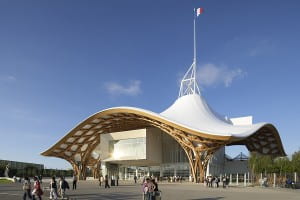Posted by Julie
Studies have classified three ways of learning: auditory, visual, and hands-on, which are generally reflected in how we experience anything. There are a great many ways experience travel, and really no bad way; you can learn a lot no matter how you experience a locale. As far as I’ve seen, though, traveling can also be divided into common experiential thought processes: shopping, eating, historical sites, museums, art, and activities. Of course, there are some other outlying processes, and most people pursue a mix of the thought processes.
However, there is another way to learn about a city and its culture that I’ve seen as increasingly beneficial: personal connections. This is on the rise, with the increasing popularity of shared economy companies such as AirBnB and Couchsurfing; the latter especially encourages interacting with hosts and experiencing a city with them. This personal touch from someone in the area leads to memories that wouldn’t be possible otherwise, as it adds more knowledge than one could gleam out of all of the blog posts about a space.
Not only do you get recommendations on all of the experiential thought processes and the related points of interests of each, your new friend can impart knowledge or even funny stories, and the personal connection can be invaluable. Most people I know have met fascinating people along the way, whether via rooming or just wandering the city, and are still connected with them through Facebook, or even actively talking to them!

Why I do I bring this semi-obvious point up? Well, it’s story time. Quite possibly my favorite part of Easter weekend was our short train ride between Prague and Berlin, and no, not because we finally sat in a car similar to those of the Hogwarts Express. (EEP.) We did sit in a similar carriage, but the important details were our neighbors: two German sisters, each with their respective kid. After settling in, my friend pulled out a deck of cards, and AJ has a really great fancy-shuffle he can do. (That’s a technical term.)
The kids were immediately spellbound by his magical card manipulation, and from there he taught them how to do his bridge shuffle, played Uno, and learned the word for “red” in German. The family spoke little English, and AJ and I spoke close to no German, so communication was limited, but I had a conversation with the adults. We stumbled through broken English about life in Germany and their policies. It was interesting to see a different normal and to learn about their experiences more than anything. Though a difficult conversation, it was certainly the most rewarding during my trip.
The value doesn’t always rest in conversation, though. The personal connection can be just as powerful. AJ hung with the kids, who knew some English from their studies, but they were more interested in the cards than politics. Ask him (like I did), and he would say it was the best part of the trip too. (“Most definitely the best.”) From what I saw, our car was the most fun, as there was a kid watching the

action from the corridor window. We both knew as the events were unraveling that this would be one of those moments that we would never forget.
So, what is my recommendation in life and in travel? Talk to and interact with people. Perspective is a powerful tool to understanding more of the world, and every other person has it. And often, it leads to places you never imagine.
Bonus: your new friends might graciously donate the rest of their candy to you, too.

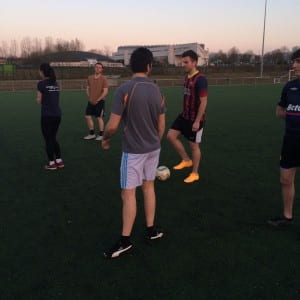
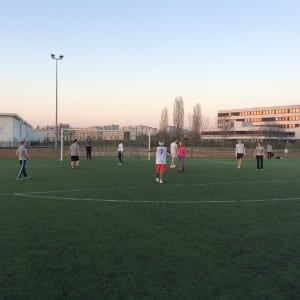

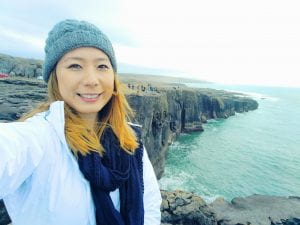
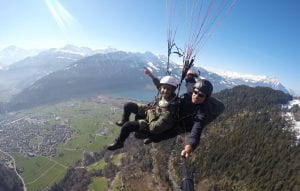
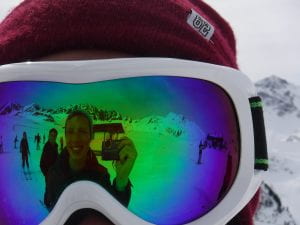
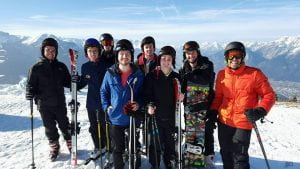
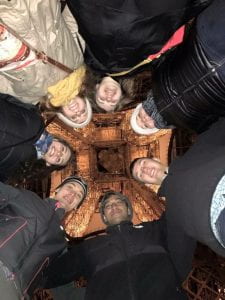
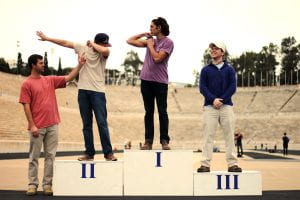

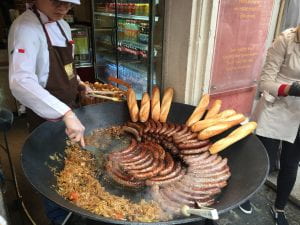

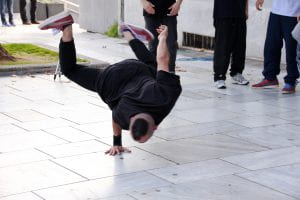


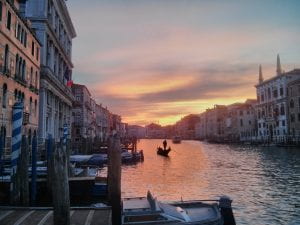


 ust about any experience, but especially for travel: there will always be something that doesn’t go as planned, but honestly? There’s no need to overly stress. We have lots of opportunity to travel, and the rules at Georgia Tech-Lorraine allow for a certain flexibility, so if your train gets stuck in Frau, Austria, generally it’s fixable. Also, I’ve found, personally, that when things don’t go as planned – that’s when the magic happens. Those are the memories you’ll keep. (Like wandering around Naples at 10pm with your friends to find that one pizza restaurant that guy in Rome recommended. Totally worth it, by the way.)
ust about any experience, but especially for travel: there will always be something that doesn’t go as planned, but honestly? There’s no need to overly stress. We have lots of opportunity to travel, and the rules at Georgia Tech-Lorraine allow for a certain flexibility, so if your train gets stuck in Frau, Austria, generally it’s fixable. Also, I’ve found, personally, that when things don’t go as planned – that’s when the magic happens. Those are the memories you’ll keep. (Like wandering around Naples at 10pm with your friends to find that one pizza restaurant that guy in Rome recommended. Totally worth it, by the way.) toward one statement made by Ms. Bass: “GTL students become like a community.
toward one statement made by Ms. Bass: “GTL students become like a community.




 the cost. – Sienna
the cost. – Sienna 1. Spaghetti: All you need are two basic ingredients: Noodles and spaghetti sauce (meatballs optional). Boil your noodles in 5-10 minutes on the stove, warm up a pre-prepared spaghetti sauce, and voilà…you have yourself a meal. If you really want to channel your inner chef, try throwing in some seasoning and parmesan cheese. (Suggestions: Panzani spaghetti noodles and tomato pesto, Auchan brand)
1. Spaghetti: All you need are two basic ingredients: Noodles and spaghetti sauce (meatballs optional). Boil your noodles in 5-10 minutes on the stove, warm up a pre-prepared spaghetti sauce, and voilà…you have yourself a meal. If you really want to channel your inner chef, try throwing in some seasoning and parmesan cheese. (Suggestions: Panzani spaghetti noodles and tomato pesto, Auchan brand) 2. Sandwiches: After a couple of months your meals may start to feel somewhat repetitive, and that’s where the sandwich comes in. Possible ingredients include tomatoes, cheese, lettuce, mayonnaise, mustard, ham, chicken, etc. There are endless combinations to choose from. Even bigger plus: buy a bag of zip-locks and sandwiches become the perfect to-go meal.
2. Sandwiches: After a couple of months your meals may start to feel somewhat repetitive, and that’s where the sandwich comes in. Possible ingredients include tomatoes, cheese, lettuce, mayonnaise, mustard, ham, chicken, etc. There are endless combinations to choose from. Even bigger plus: buy a bag of zip-locks and sandwiches become the perfect to-go meal. 3. Potatoes/French Fries: Who doesn’t like potatoes? Head to the freezer section of Simply or Cora and you’ll find potatoes cut in virtually every shape and size. Throw some oil and butter on a pan and warm them on your stove for about 10-15 minutes. Eat as a side dish or even a main meal. Optional: Season with basil, garlic, salt, and/or black pepper. (Suggestion: ‘Pommes Rissolées’, Auchan brand)
3. Potatoes/French Fries: Who doesn’t like potatoes? Head to the freezer section of Simply or Cora and you’ll find potatoes cut in virtually every shape and size. Throw some oil and butter on a pan and warm them on your stove for about 10-15 minutes. Eat as a side dish or even a main meal. Optional: Season with basil, garlic, salt, and/or black pepper. (Suggestion: ‘Pommes Rissolées’, Auchan brand) exam. Buy a large carton of milk to last multiple meals. Keep in mind that most French milk is not pasteurized, and the taste is slightly different from what we’re used to back home. While you won’t find the exact same cereal brands, you’ll find very similar ones, for example, Kellogg’s Frosties.
exam. Buy a large carton of milk to last multiple meals. Keep in mind that most French milk is not pasteurized, and the taste is slightly different from what we’re used to back home. While you won’t find the exact same cereal brands, you’ll find very similar ones, for example, Kellogg’s Frosties.



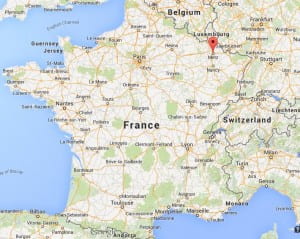 It is a cultural, commercial, and transportation center of Lorraine, an industrial city producing metals, machinery, tobacco, clothing, and food products, and the home of one of France’s largest military bases.
It is a cultural, commercial, and transportation center of Lorraine, an industrial city producing metals, machinery, tobacco, clothing, and food products, and the home of one of France’s largest military bases.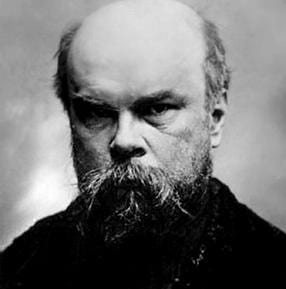 During the German annexation of E Lorraine (1871–1918), Metz, largely French-speaking, was a center of pro-French sentiment. During World War II the city suffered greatly under German occupation.
During the German annexation of E Lorraine (1871–1918), Metz, largely French-speaking, was a center of pro-French sentiment. During World War II the city suffered greatly under German occupation.
